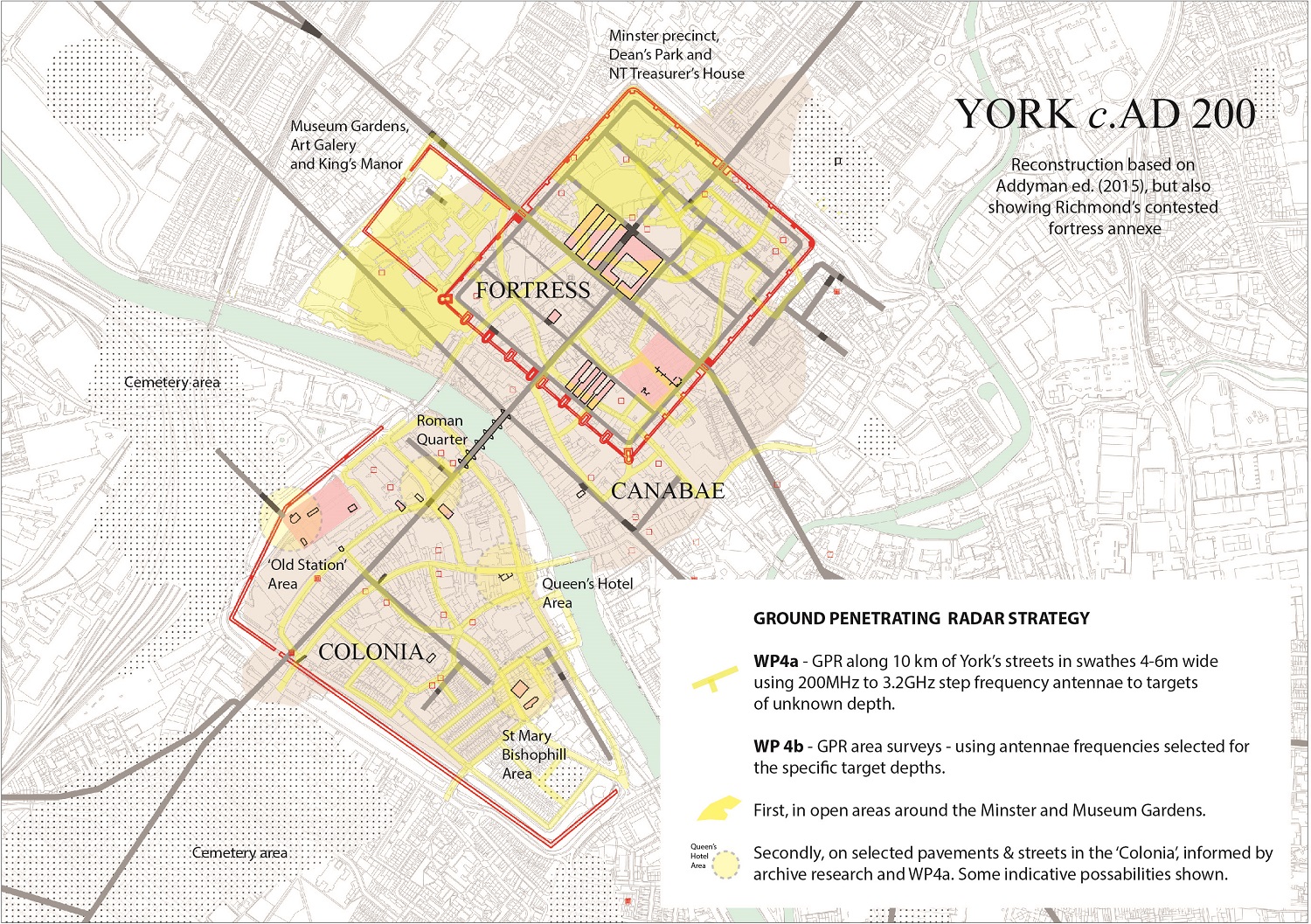
Submitted by A.J. Holroyd on Tue, 12/10/2021 - 14:37
Martin Millett, Laurence Professor of Classical Archaeology, University of Cambridge, and Dr John Creighton, Department of Archaeology, University of Reading, have been awarded a grant of £718,598 from the AHRC for a new project on Roman York (which will run from November 2022 to April 2024).
The nature and topography of Roman York (Eboracum) remains little known despite many centuries of research. Clearer knowledge is an essential prerequisite for comprehending both York’s role within the Roman world and its transformation into a new centre of power in the post-Roman period. This project has been developed in close collaboration with the City of York Council’s Historic Environment Record (HER), York Archaeological Trust (YAT) and the York Museums’ Trust (YMT) and following extensive discussions with other stake holders. It will capitalise on the results of past research, using state-of-the-art academic expertise to build a new foundation for future exploration and public engagement. This is particularly timely given current plans for enhancing existing museum displays and the development of a new Roman visitor centre in the city.
The project will develop a new approach to understanding the Roman city, integrating the large amounts of data from past Antiquarian research and previous archaeological excavation with a new programme of fieldwork. This will deploy Ground Penetrating Radar (GPR) survey in both open areas (for instance around the Minster) and along the streets within the City to map buried deposits. We will also be studying material in museum collections in order to provide a clearer understanding of the development of Roman York and its environs.
The project will address the following research questions:
- Is there evidence for alterations to the legionary fortress through the late Antique period?
- What was the character of settlement surrounding the legionary fortress (conventionally called the canabae), both physically and in terms of material culture, and how did this change through time?
- What was the character of settlement on the SW bank of the river Ouse (conventionally referred to as the Colonia); how did this develop through time? Did it differ in character from the canabae?
- Is there evidence for enhancement associated with the periods of imperial residence (AD 208–11 and AD 305-06), or following York’s promotion to colonial status in the early 3rd century?
- Is there evidence for changes in the organization and use of land in the immediate environs of York through the Roman period?
- How does the extent and character of occupation change in the 4th–5th centuries?
As well as providing a new understanding of the Roman City, the project will also develop a new approach to the integration of the fragmentary archaeological evidence from occupied cities. All this will be combined with a Public Engagement Programme, organised jointly with the York Archaeological Trust, which will engage the local community in understanding and appreciating their urban environment.
Plan of current knowledge of Roman York, with the GPR Strategy displayed, by John Creighton and Martin Millett. Reconstruction based in Addeyman Ed. 2015 with additions, and also contains OS data (c) Crown Copyright 2020.

